LADI6, TRINITY ROOTS / “Kiwi Music”
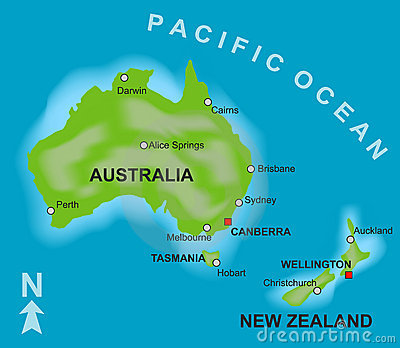
New Zealand is my favorite place I’ve never physically been. It’s mainly the music but not just the music. I’ve checked out and been smitten by some of the cinema coming out of Kiwi country. But it’s mainly the Aotearoa (aka New Zealand) social struggles that's at the core of the Maori and other Pacific indigenous cultures that emanate from the twin isles on the southeast side below Australia.
Since BoL is a music site, our focus is on the music but the core of this music is culture-based. The two featured artists represent two wholly different approaches. Ladi6 is hip hop electronic and Trinity Roots is reggae based.
A while back (see here) we featured Ladi6 among a four-female roundup. The Liberation of ... is her sophomore release. This time out she’s working with producers/DJs out of Germany, so the sound is more generic hip hop without the New Zealand textures in the music but it’s still Ladi6 coming hard.
You can hear in her lyrics the defiant tone common to cultures resisting co-option and oppression. Even though she does not specifically identify herself as Maori/New Zealand, and even though the overall sound and production is hip hop oriented, the Ladi6 personality is unmistakable. As both a vocalist and an emcee she is the complete package.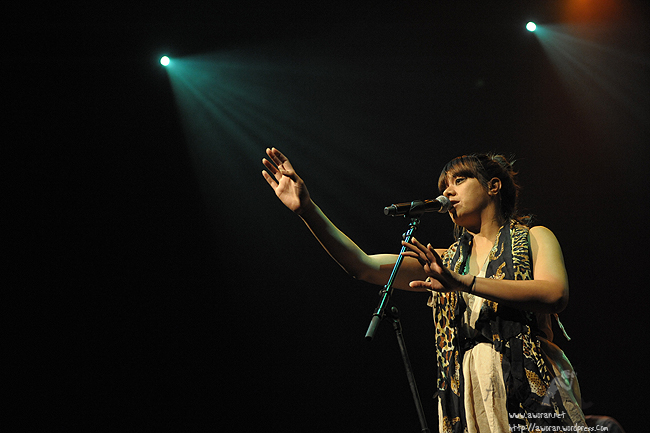
“I wanna fight” she proclaims in “Bang Bang” the opening track. As she clarifies in “98 To Now” Ladi6 is fighting for respect and recognition. Even the love song “Like Water” has an edge in its flow, thus she admits that although she loves completely, she recognizes that “this is hard”—and part of the hardness is that she recognizes that she has to compete with others for her lover’s attention.
And so it goes with her lyrics on and on. In “Let It Go” she acknowledges that she wants success and realizes that she has to “let go” of old certainties and face her fears if she is to move on. “Squid” is an anti-capitalism screed that chants “who's afraid of the big bad wolf/not me, not me.” Indeed with a lyrical sound that is a complete contrast to the meaning, Ladi6 refers to those who would take from her as “motherfucker.”
This is the voice of the underdog, the oppressed rising up, reaching for success on her own terms even as she recognizes that she has to fight back and compete against far stronger foes. This condition cuts both ways because success necessarily means moving away from one’s roots. The hard task is to figure a way to celebrate self and at the same time transcend the limitations of being less than one wants to be. Some people call this the island mentality, some analyze it as the psychology of the oppressed, others embrace the struggle to transcend and a few characterize this as the classic fight or flee syndrome with the preference to be to flee via assimilation.
Will Ladi6 end up becoming less Maori the more successful she becomes on an international level? Will she return to “native” producers for her next step or continue working in collaboration with foreigners? Either way there are no certainties and no easy paths. Moreover, there is no one right or one revolutionary way to make meaningful music.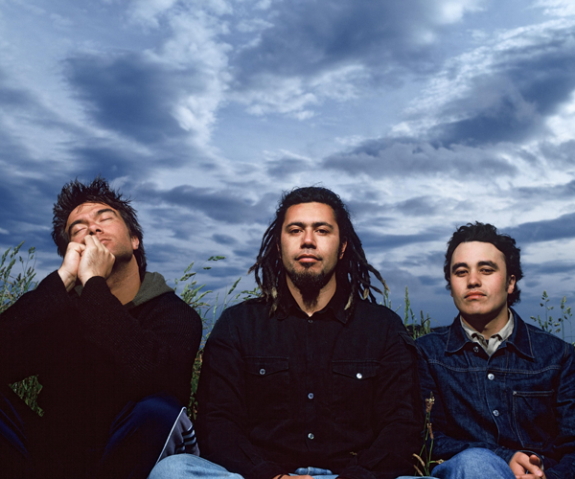
Which brings us to Trinity Roots who, along with Fat Freddy's Drop, are the most celebrated Maori band of the last twenty years. Trinity Roots is Warren Maxwell (lead vocals/guitars/keyboards), Rio Hunuki-Hemopo (bass/vocals) and Riki Gooch (drums/vocals). They met at college in Wellington where they were studying music, concentrating on jazz. They were born in different reaches of Aotearoa and as the only Maori students on the campus they gravitated to each other and eventually formed Trinity Roots in 1998.
Two recordings (True-2002 and Home, Land and Sea-2004) and seven years later they had sold platinum and were performing at sold-out concerts when they decided to disband because the music was becoming more a chore than a joy and they felt themselves beginning to just go through the motions.
Fast forward to 2010 and the disbanded group now has a new recording that includes a DVD. The irony is that the music is from their 2005 farewell concert at which they announced they were disbanding. They were also in the process of being the subject of a long term documentary. So five years later the music from that break-up concert is released with the documentary as a companion DVD and, will wonders never cease, this spurs the band to reform for a limited series of concerts. Appropriately, the new record is titled Music Is Choice.
While it is almost impossible to view Trinity Roots as anything but an indigenous Maori crew who consciously and consistently repped their homeland and forwarded Maori culture, their reality is a bit more complex. Trinity Roots might easily be seen as more authentic than what Ladi6 is doing, more true to their “roots,” but are they?
Back in April 1979, Bob Marley visited New Zealand and the music from that island has never been the same. Trinity Roots is heavy, heavy reggae, as well as rock, as well as soul influenced. Although their Maori roots are always evident, their music is not primarily Maori in its form and structure. I do not mean this as a put down or as a negative assessment.
In today’s world, it is impossible to be both contemporary and purely "one" thing. What Trinity Roots does so well is use musical forms that are based in resistance to mainstream homogenization, musical forms that celebrate resistance and cultural opposition. Trinity Roots uses the forms as a vehicle to carry their audiences into a celebratory trance state. On the new record you can hear the audience responding—the concert resounds with spiritual ecstasy.
We might argue that the lyrics are more openly about Aotearoa and Maori culture, and also argue that they use the Maori language rather than solely sticking with English, but that does not negate the fact that the musical form itself, the reggae and the rock are not indigenous even though those forms have been totally embraced and have literally taken rooted in Aotearoa. This question of “authenticity” is a complex issue and certainly, as Amilcar Cabral (an African liberation leader from Guinea and Cape Verde) noted: we will be truly free only when we can both maintain our own sense of self and maintain our own culture while simultaneously, without complexes, be able to interact and learn from all other human cultures.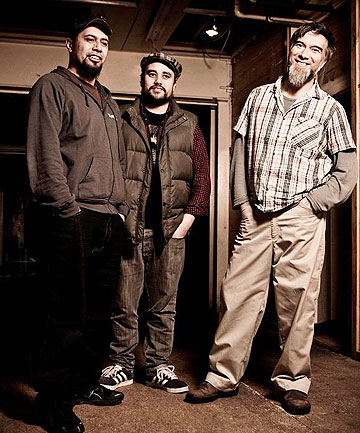
I love what Trinity Roots is doing precisely because they epitomize authentic art from the perspective of people of color who are truly free, both rooted in their own culture and interacting with other cultures. They are rooted in their own indigenous culture and at the same time, without complexes, are able to draw on and learn from other cultures. Significantly, heretofore, for far too many people of color worldwide, learning from others inevitably meant conforming to norms and forms established by our historic oppressors. Trinity Roots is not doing classical music.
I think you understand my point. Listen to these guys and to guest artist Hollie Smith. The Trinity Roots vibe is totally upful. And at the same time, Ladi6 should be encouraged to continue her pursuits in a hip hop vein. It’s all good and it’s all part of a culture of resistance that is also a culture of self-expression; resistance to mainstream, Eurocentric domination and the self-expression of historically colonized and oppressed peoples.
Listen and be inspired.
—Kalamu ya Salaam
Kiwi Music Mixtape Playlist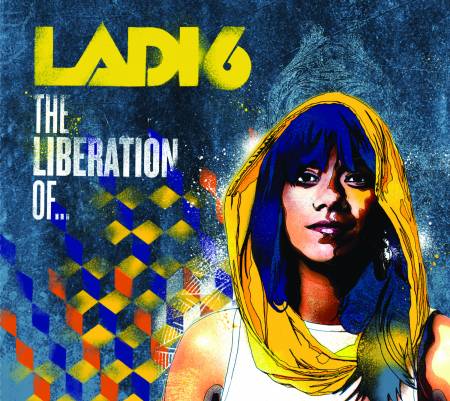
The Liberation of…
01 “Bang Bang”
02 “98 Til Now”
03 “Like Water”
04 “Let It Go”
05 “Squid”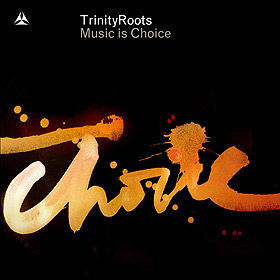
Music Is Choice
06 “Home, Land & Sea”
07 “The Dream”
08 “Just Like You”
09 “Touches Me”
This entry was posted on Tuesday, November 16th, 2010 at 9:38 am and is filed under Contemporary. You can follow any responses to this entry through the RSS 2.0 feed. You can leave a response, or trackback from your own site.
Leave a Reply
| top |